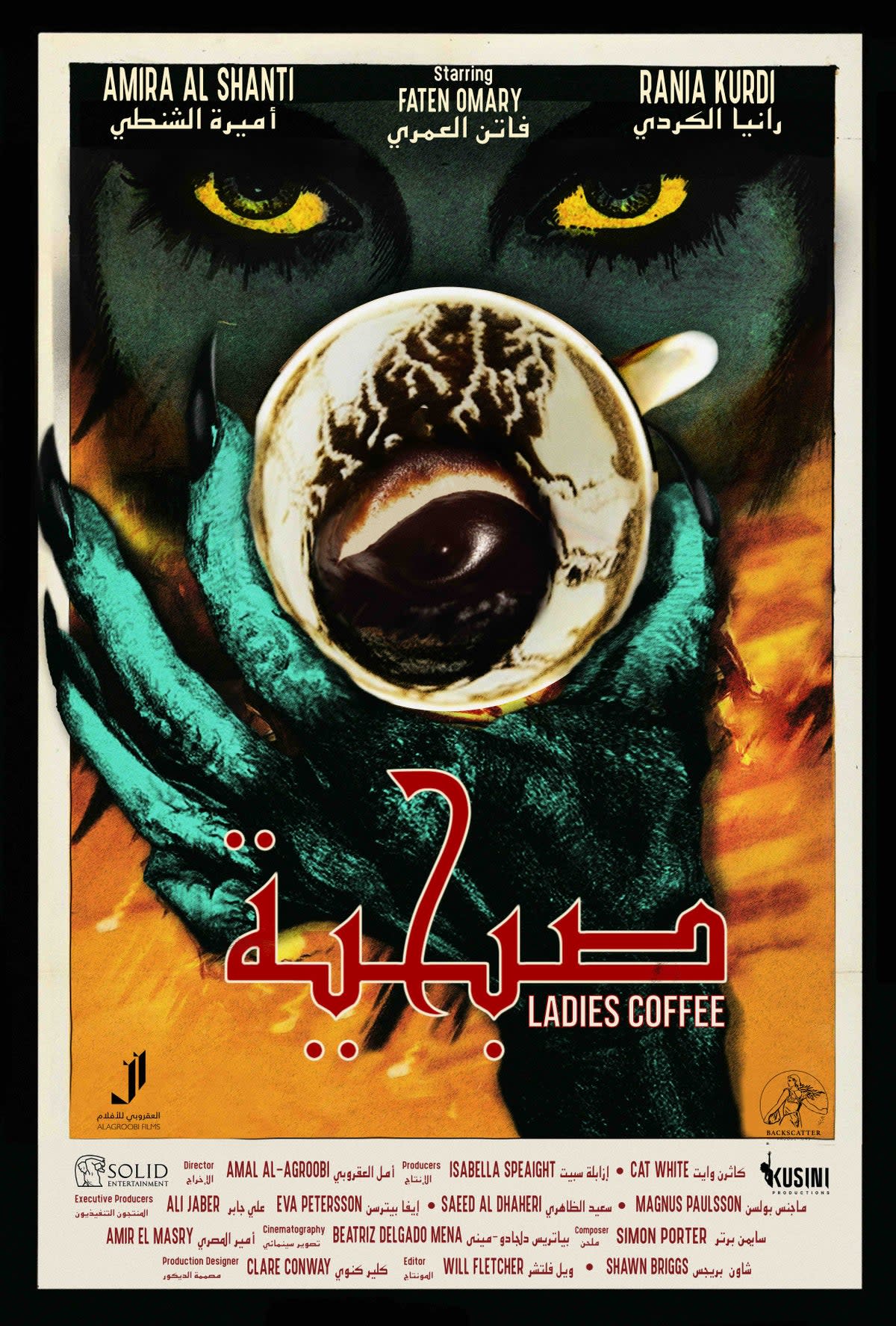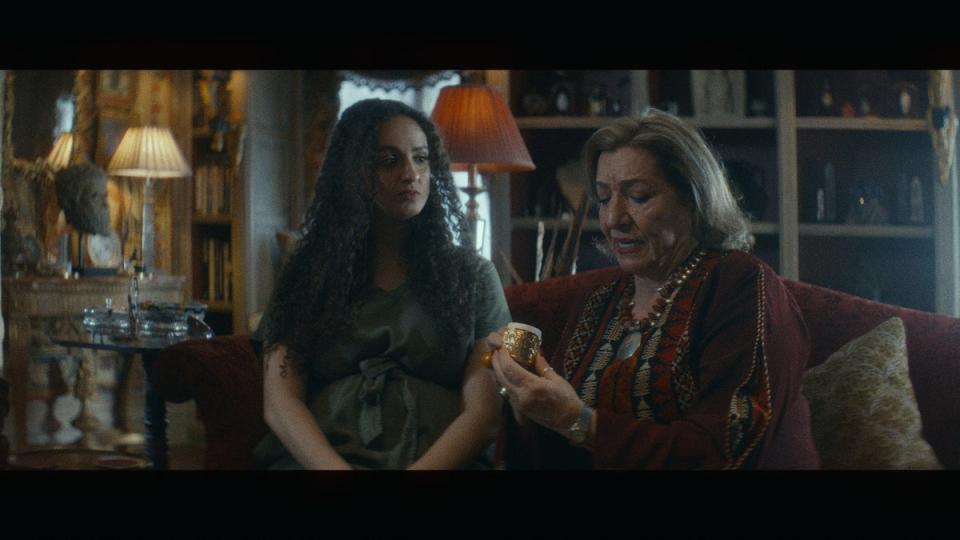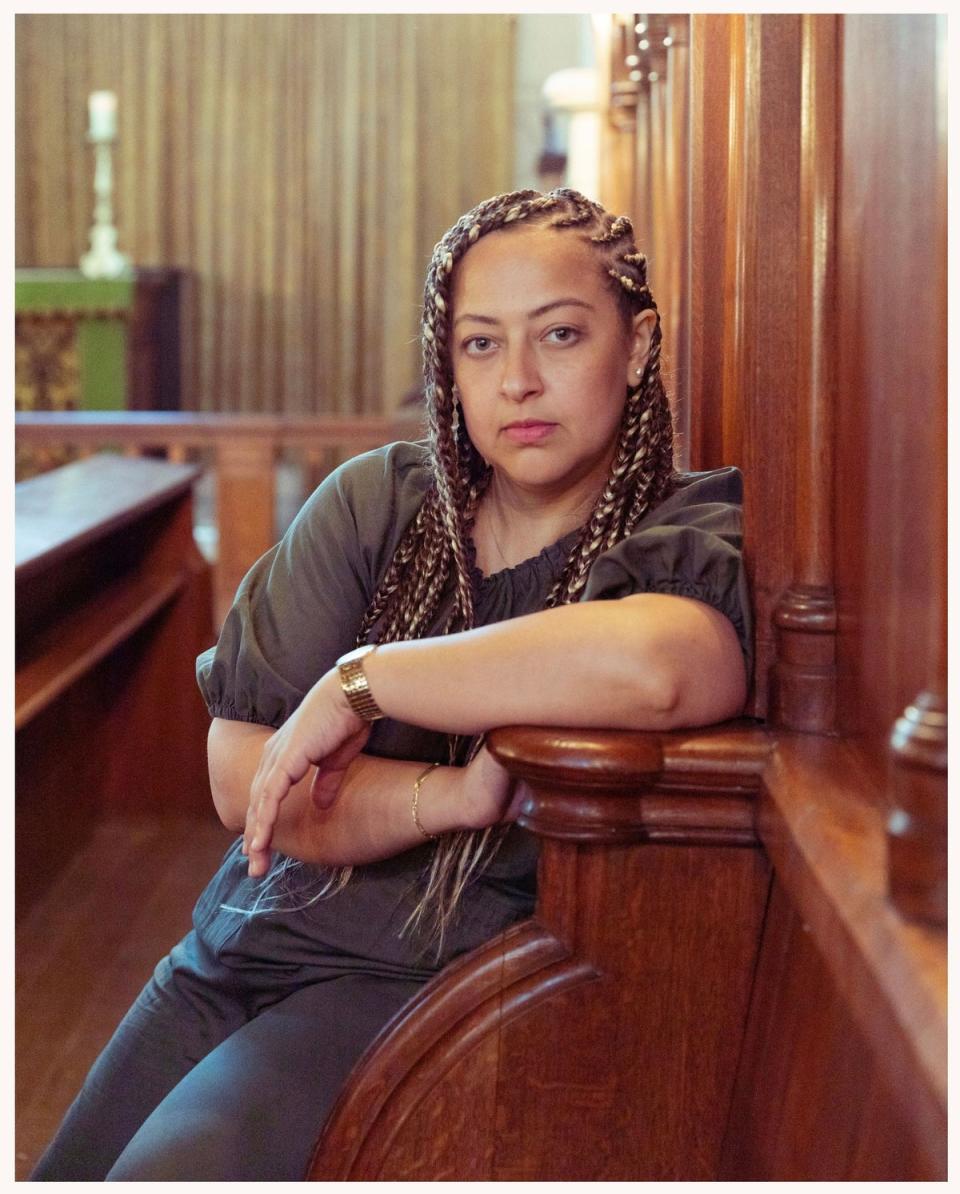Ladies Coffee: trailblazing female-led British-Arab horror premieres at AWAN festival

Arab Women Artists Now (AWAN) is no stranger to presenting boundary-breaking works. First founded in 2015 to showcase art by Arab women, the annual grassroots festival brings together a whole host of musicians, filmmakers, artists and comedians every March, to coincide with International Women’s Day.
And its 10th year promises yet more thought-provoking, genre-bending works, with a programme boasting highlights such as a Jazz night at the Royal Albert Hall’s Elgar Room, a panel with five Arab women publishers, a showcase of electronic DJs, two concurrent exhibitions featuring Palestinian artists, and the premiere of Emirati director Amal Al-Agroobi’s trailblazing new short film, British-Arab horror, Ladies Coffee.
While there have been some pioneering Middle Eastern horror films over the years, including 1981’s Fangs, 1985’s Al Ens Wa Al Jinn (The Humans and The Jinn), Nayla Al Khaja’s The Shadow (2019) and the acclaimed Persian vampire-horror A Girl Walks Home Alone at Night (2014), Al-Agroobi is the first to transform a traditional Levantine tradition – coffee reading – into a horror short, while also exploring diasporic Arab lives.

In the film, a meeting between three relatives – Syrian mother Zeina, her twenty-something daughter Reem, and their mysterious auntie Roula – turns eerie, fast. An unexpected coffee grounds ritual reading seems to have unleashed a dark spirit in host Roula’s British home, and Reem, who has been raised in the UK, starts hearing noises and seeing peculiar things.
The film then shifts. A spooky exchange involving Reem provokes questions about loss. Weary faces of strange men seem to nod to the sacrifice of families who were forced to leave the Middle East for safety, but in doing were separated from their culture, friends, home, and status. And when something creeps up on Reem, perhaps this is the physical embodiment of “Arab diaspora's seldom-told stories and precious traditions,” which director Al-Agroobi aims to highlight in her new film.
“Because I come from a country where there tends to be a lot of censorship, where we can't share our truths, I've found a way to express that in different ways within the cinema,” says Al-Agroobi, whose mother is Syrian and father is Emirati. “Genre is a great thing that I can play with.” Al-Agroobi’s previous works include comedies, sci-fi films and documentaries – this is her first horror.
“The inspiration for Ladies Coffee came from a desire to showcase the British-Arab community and our rich Levantine Arab traditions in a narrative format that hasn't been seen before,” she says. “I wanted to merge the world of the seen with the unseen.” She explains that the premise of the film is heavily influenced by the “horror lens” of the American author H. P. Lovecraft, and his surreal, cosmic take on the genre.
With Syria now in its 14th year of crisis, and with 12 million Syrians forcibly displaced, Al-Agroobi’s film – which explicitly touches on the country’s situation – is a meditation on loss and home, as well as intergenerational dynamics, family and tradition. Al-Agroobi, who grew up in Europe, hasn’t visited her family in Syria since the civil war began.
In Ladies Coffee she “aimed to highlight the nuanced experiences of third culture kids [children who are raised in a culture that differs to their parents’], offering a glimpse into their struggles, strengths, and the rich cultural tapestry they embody.”
But Al-Agroobi is also keenly motivated to invert what she sees as mistaken narratives of Arabs in the media: “[The film] is a way for us to share our own stories and move away from what the media considers Arab culture to be – a world full of submissive women, inequality and war. This is not who we are at all,” she says.

“We as Arabs, we know that we don't get access to the things that we need. We know that we're abused on many different levels, we know that sometimes our voices are silenced. We're quite aware. But with me and with my stories, I'm like, let's not focus on that. Let's focus on what we enjoy within our society.”
“My hope is that Ladies Coffee will serve as a catalyst for greater representation and appreciation of Arab-centric narratives in the film industry.”
Al-Agroobi has a background in biomedical sciences and neuroscience, but changed career over a decade ago, motivated to tell stories about social injustice, unpicking identity and human character. In Ladies Coffee, she continues exploring these themes with a female-led team: not only is the film directed by a woman, it’s centred on women’s experiences, and has been produced by two female-led production companies.

“This collaboration ensured that the film was approached with a sensitivity and understanding of the nuances of female experiences, especially within the Arab diaspora,” says Al-Agroobi “It influenced the storytelling by prioritising female voices and perspectives, both in front of and behind the camera.”
“We [Arabs] want to celebrate our society and our cultures and our stories. Whereas the media is doing everything it can to put it down.” Ladies Coffee, part of a special Q&A evening at the festival, will be screened alongside Riffy Ahmed’s The Call (2023) and Larissa Sansour’s In Vitro (2019).
Ladies Coffee will premiere at AWAN Festival, March 24. AWAN Festival runs until March 30; awan.org.uk


